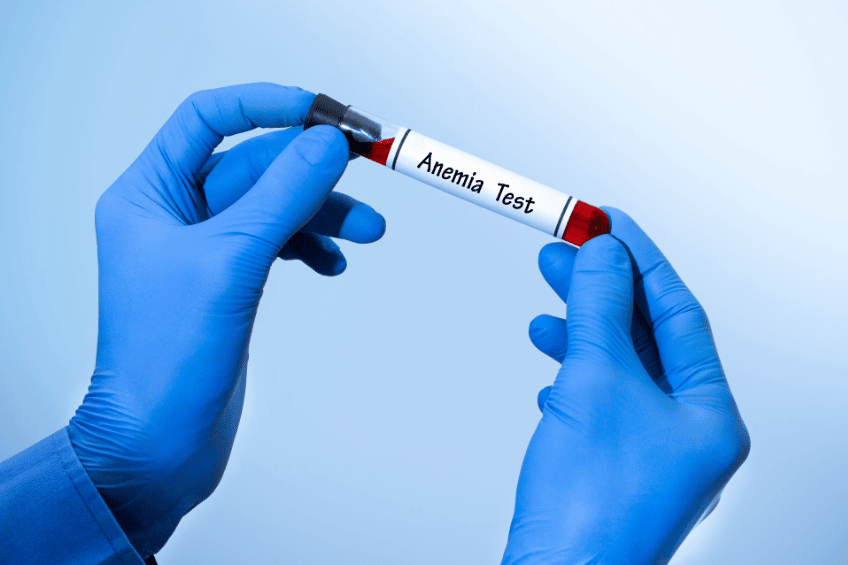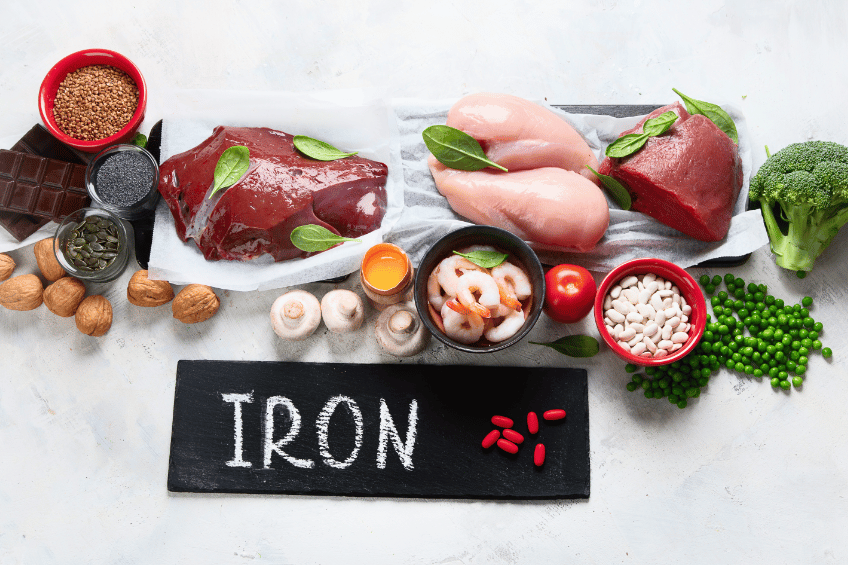Anemia diagnostics
First of all, your doctor is going to talk to you about your medical and family history, give you a physical exam, and perform a complete blood count which reveals the number of blood cells in a blood sample. To determine if you have anemia, your doctor will look at the number of red blood cells (hematocrit) and hemoglobin. Then, the diagnostics of anemia are individual, depending on what the doctor sees in your general blood test results, they choose further tactics of treatment and diagnostics specifically for your case. Of course, your GP wants to understand the causes that led to anemia and immediately exclude the dangerous ones: ulcers and tumors of the stomach and intestines, as well as dangerous blood diseases, such as leukemia and aplastic anemia.

How to treat anemia?
Your treatment will depend on the form of anemia you have. Only a qualified specialist is able to figure out what is the cause of your case, so don`t hesitate to make an appointment with your doctor.
Remember: not all types of anemia can be fully cured. However, there are many treatment options available. In some cases, a person might need symptomatic treatment that includes chemotherapy, blood transfusions, bone marrow transplantation, and drugs that hold back your immune system.
Fortunately, it is much easier to fight with the most common forms of anemia – iron deficiency or vitamin deficiency ones. Your doctor will most likely prescribe vitamins and iron supplements or just recommend eating a healthy and varied diet, including:
- Foods high in iron. These include beef, beans, lentils, dark green leafy vegetables, and dried fruits.
- Lots of folic acid. Folate is found in foods, fruits and fruit juices, dark green leafy vegetables, green peas, beans, and peanuts.
- Meals rich in vitamin B12. For example, meat and dairy products.
- Foods high in vitamin C. This vitamin improves the absorption of iron, you can find it in citrus fruits, bell peppers, broccoli, tomatoes, strawberries and melons.

How can I prevent anemia?
Certain forms of anemia (especially inherited ones) cannot be prevented. However, you can prevent anemia caused by iron deficiency, vitamin B12 deficiency, and folate deficiency by sticking to a healthy diet and lifestyle. Eat a diet rich in foods that provide iron and these vitamins, along with vitamin C food sources to help with iron absorption. Make sure that you drink enough water and try to go for a walk when it`s sunny outside as much as possible or take vitamin D supplements as sunlight starts all the metabolic processes in your body.
While some types of anemia are short-term and mild, others can last throughout a lifetime. If you have already been diagnosed with anemia, there are several ways to help manage it. Most of all, don`t be shy talking to your doctor about any changing symptoms, keep track of them, and don`t forget to give yourself a generous amount of rest and self-care!
